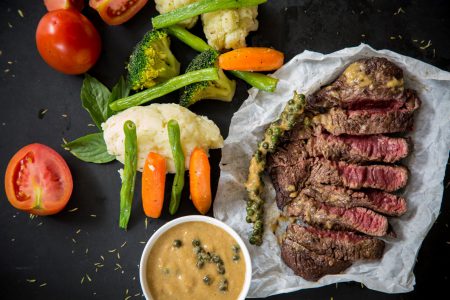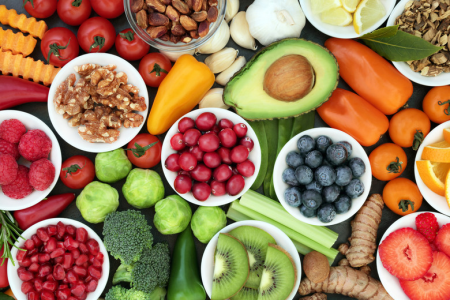
The vogue in today’s media seems to be the search for the perfect diet. The vegan, paleo and keto diets are some that have created a significant drive towards a health conscious lifestyle across America. But not every diet is right for everyone.
People seek diets to achieve a healthier lifestyle or if they are at-risk for certain health conditions. In a 2019 survey published by the International Food Information Council, there appeared to be a drop in the paleo diet and rise in the keto diet, while the vegan diet was officially added as a new diet. A better look inside these diets could help a person determine if one is right for them.
The paleo diet is similar to keto. “Both diets encourage the consumption of many nutritious whole foods and exclude highly processed foods,” reports Medical News Today. The idea of the paleo diet is to eat foods that could have been hunted and gathered in the early age. But both diets consist of fish, lean meats, fruits, veggies, nuts and seeds. Some of the benefits are weight loss and the ability to absorb nutrients more easily.
“It can be difficult to stick to,” says Rita Higgins, a registered dietitian and nutrition professor at Fullerton College. “The person that’s eating in that style really needs to pay attention to the type of animal foods they’re consuming.”The paleo and keto diet are considered short diets, and many may be tempted to indulge freely on saturated fats. But remember, balance is everything.
Jeannette Hallstrom, a Fullerton resident, went on the keto diet for three months and found herself coping by eating lots of bacon, which goes along with the diet guidelines. “I did my physical, and my cholesterol was slightly elevated, so I was afraid that all the bacon and everything was causing it,” says Hallstrom.

The keto diet is far more restrictive due to its high-fat, low-carb and moderate protein intake. It’s mostly recognized for how quickly it can make individuals lose weight, but many may not know about the positive impact it’s had on patients with epilepsy and diabetes. If animal products aren’t working out for your body, then the vegan diet might be for you.
A vegan diet has a significant amount of health benefits without the use of animal products and practically fulfills all the necessary nutrients the human body needs. Higgins says, “A plant-based diet has over and over been associated with lower health risks for obesity, heart disease, Type 2 diabetes, metabolic syndrome and especially some cancers.” Luckily, online recipes and local restaurants, such as Modern Shaman and Healthy Junk, have made the lifestyle more enjoyable with creative and nourishing recipes.
Before you decide which diet to experiment with, Higgins recommends asking yourself, “Is it something I can sustain?” and “Is it realistic for me?”
